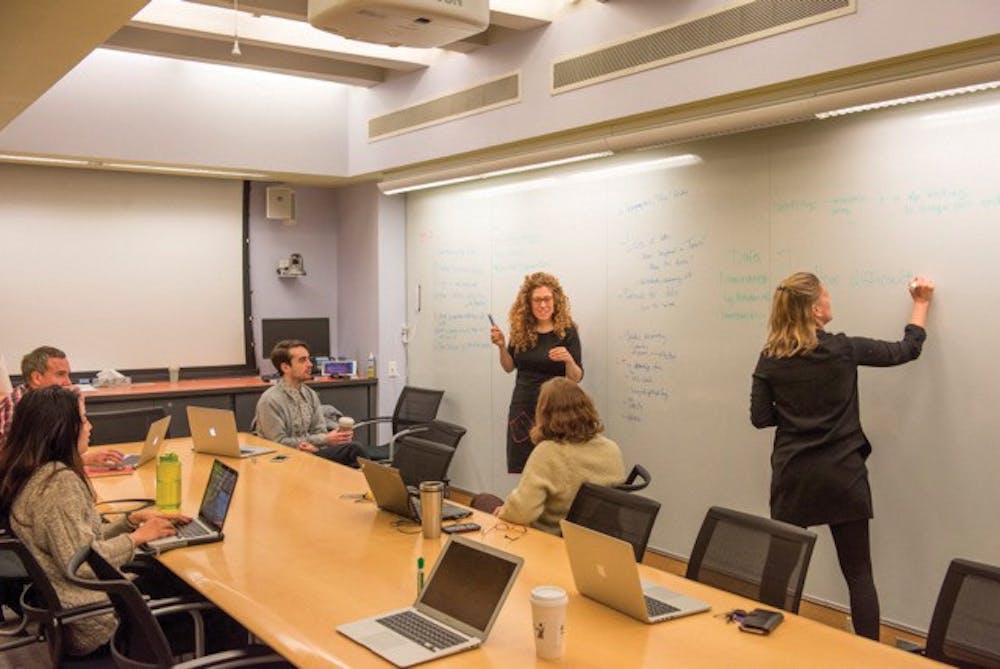
Penn's DataRefuge project was a huge success and other schools and cities hope to start their own programs.
Credit: Courtesy of David ToccafondiWhen the time came for Penn’s Program in the Environmental Humanities to meet and decide what project it wanted devote its resources to in upcoming year, the decision was unanimous. After the election of 1968 Wharton graduate Donald Trump, its choice was easy: the DataRefuge project.
DataRefuge is a national collaborative effort to download, save and reupload climate and environmental data. The project also aims to raise awareness of how social and political events affect the public availability of data.
PPEH director Bethany Wiggin emphasized the “precarity of environmental data” as a result of the recent election. She cited how former Canadian Prime Minister Stephen Harper as a result of the recent election. She also mentioned examples in the United States, like how the Wisconsin Department of Natural Resources recently removed any language from its website suggesting that humans or greenhouse gases have affected climate change.
“I’m a training cultural and literary historian,” Wiggin said. “I actually do believe that we can learn from history.”
Etienne Benson, a member of PPEH’s academic advisory board, pointed out that the Trump administration has suggested “profound skepticism of environmental issues.”
For this reason, DataRefuge aims to create a network of data repositories for public access. Benson and Wiggin agreed that the availability of data is necessary to inform public decisions.
“We have to make fact-based arguments,” Wiggin said. “Without the data, facts are missing.”
Patricia Kim, the program coordinator, expressed her concern for how the opinions of high-level officeholders affect the availability of information to the public. The government itself implements an “End of Term Harvest” to preserve public information on government websites before the inauguration of a new president.
Kim acknowledged that denial of climate change existed before Trump’s presidential run, but that his election “awakened many people.”
She added that their event DataRescue Philly is purposefully scheduled on Jan. 13 and 14, only a week before Trump’s inauguration on Jan. 20. The event will include “teach-ins," a roundtable discussion, food and an art installation called Date/um. The University of Toronto also hosted an event in collaboration with the group, and events are scheduled in Indianapolis on Jan. 19 and Los Angeles on Jan. 20.
“What we are most concerned about is sparking broader conversations on information, data, knowledge and fact not only to our University and Philadelphia but to a broader audience,” Kim said.
Although this project was inspired by the presidential election, Benson felt that the mission is important regardless of the administration and said it is a “bigger picture than the president.”
In his opinion, the mission of DataRefuge must be accompanied with an effort to preserve the collection of new data as well.
Kim agreed with Benson, saying that it is up to the public to put pressure on elected representatives to continue funding national institutes and science foundation grants.
Wiggin also pointed out that the effects of climate change on communities are widespread and added “DataRefuge saves lives.”
The Daily Pennsylvanian is an independent, student-run newspaper. Please consider making a donation to support the coverage that shapes the University. Your generosity ensures a future of strong journalism at Penn.
Donate







